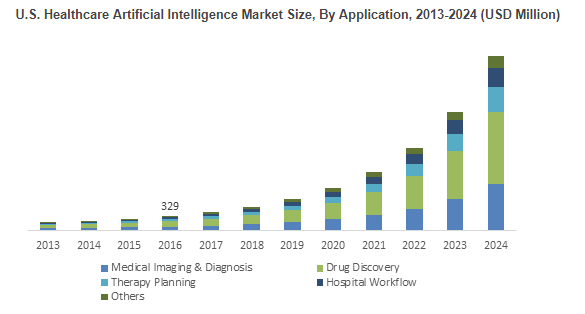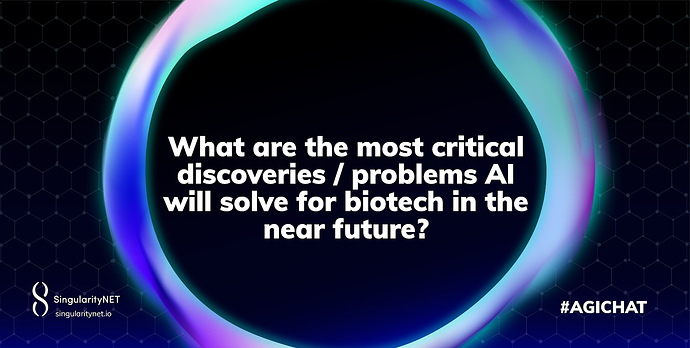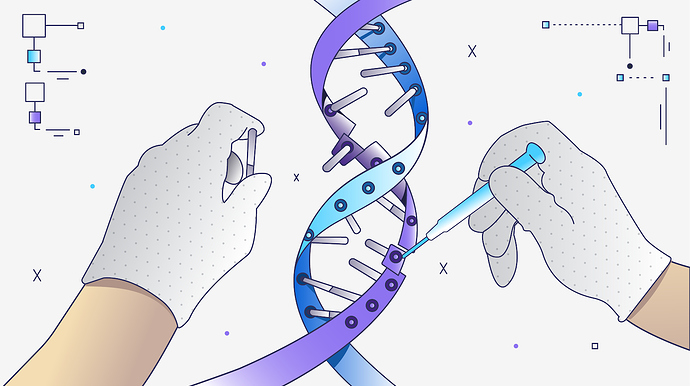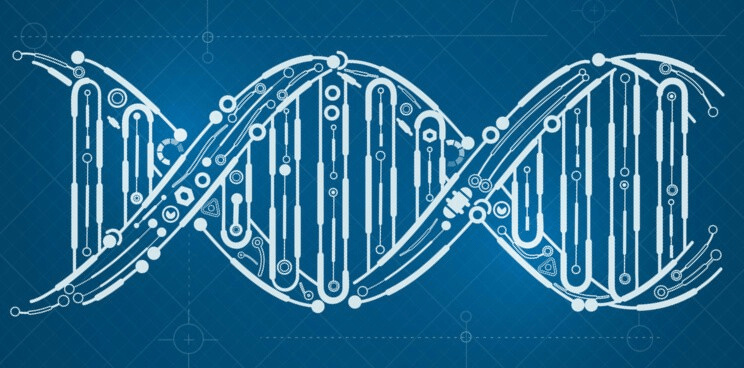Biotechnology (commonly abbreviated as biotech) is the broad area of biology involving living systems and organisms to develop or make products, or “any technological application that uses biological systems, living organisms, or derivatives thereof, to make or modify products or processes for specific use”
For thousands of years, humankind has used biotechnology in agriculture, food production, and medicine. The term is largely believed to have been coined in 1919 by Hungarian engineer Károly Ereky. In the late 20th and early 21st centuries, biotechnology has expanded to include new and diverse sciences such as genomics, recombinant gene techniques, applied immunology, and development of pharmaceutical therapies and diagnostic tests.
Major innovations in biotech over the last decade include:
- Induced Pluripotent Stem Cells (iPSC)
- Human Genome Editing (CRISPR)
- 3D Bioprinting
- $1,000 Genome
- Lab-Grown Tissues
- DNA Storage
- Rise of Citizen Biohackers
The Human Genome Project
The Human Genome Project (HGP) was a 13-year-long, publicly funded project initiated in 1990 with the objective of determining the DNA sequence of the entire euchromatic human genome within 15 years. Not only was this project successful but they managed it in just ten years. In June 2000 the global news was flooded with a momentous announcement that the project had successfully decoded the Human Genome and had a working draft.
The human genome corresponds in size to roughly that of about 725 megabytes of data which doesn’t sound much until you realise there are a total of 2.9 billion base pairs to decode.
The Human Genome Project has supercharged efforts to discover the causes of various diseases, with more than 1,800 disease genes have been discovered, yet we still have only just scratched the surface.
The human genome contains around 20,000 genes, that is, the stretches of DNA that encode proteins. But these genes account for only about 1.2 per cent of the total genome. The other 98.8 per cent is known as noncoding DNA. We currently have no real understanding of what this 98.8% of our genome is for.
The AI Healthcare Market
One of the biggest benefits of AI is its ability to trawl through massive amounts of data in record time, making AI a perfect tool for the Biotech industries.
A recent analysis of the healthcare AI market illustrates that the market is about to take off like a rocket. A report by Global Market Insights forecasts that the US healthcare AI market will exceed $10 billion by 2024. Consequently, capital is rapidly moving to fund and develop products and systems in the AI space.
Global markets are investing in AI abroad as well. Worldwide, 136 healthcare AI startups raised their first equity rounds in 2019. Chinese investors alone moved over $10 billion into the larger AI market in 2019, and some European firms have expressed long-term objectives for healthcare AI with the expectation to grow above $800 million by 2024. Chinese AI start-ups are actually attracting more funding than US AI start-ups.

Companies like Mozi AI a partner of SingularityNET who’s aim is to build a complete software solution that guides scientists towards discovering key conclusions within their data via a suite of software AI tools, so scientists can discover transformative medicines faster.
AI’s Role in Healthcare
AI’s computing power enhances the capacity, speed and accuracy of data analytics. With the growing volume of data in healthcare, AI can use machine learning to mine large amounts of data points from insurance claims information, comorbidities, diagnostics, procedures and prescription history to identify factors that help predict patient outcomes. AI is also able to interpret medical imaging from CT scans and MRI scans that enhance the detection of diseases.
AI can augment the patient experience and aid physicians in more accurately diagnosing diseases. The vision for AI in this context is that, after taking a panel of tests, the technology would read the patient’s complete EHR to predict the totality of a patient’s health risks and the likelihood of responding to a particular therapy. This could have enormous benefits for the millions of patients living in with rare diseases as it takes 4.8 years on average for them to receive an accurate diagnosis.
AI Transforms Drug Discovery
Perhaps the most exciting aspect of AI is that it is accelerating the use of big data to forge a new of era of drug discovery where large datasets are scrutinized to find the new generation of breakthrough treatments.
AI can mine the data to help us learn the origins of diseases and better identify the genetic basis of a variety of diseases. AI uses machine learning and deep learning to sift through datasets to identify genetic biomarkers that indicate whether a patient will be able to respond positively to a potential treatment. Biopharmaceutical companies may then utilize the findings to target the biomarker with drug treatment.
One of the richest datasets for AI is a genetic database. Across therapeutic areas, biopharmaceutical companies are making genetic databases a focus of their research and development processes. Many of these databases are being developed by direct-to-consumer (DTC) genetic testing companies.
Conclusion
The potential of AI is well described, however, in reality, health systems are faced with a choice: to significantly downgrade the enthusiasm regarding the potential of AI in everyday clinical practise, or to resolve issues of data ownership and trust and invest in the data infrastructure to realize it. Now that the growth of cloud computing in the broader economy has bridged the computing gap, the opportunity exists to both transform population health and realize the potential of AI, if governments are willing to foster a productive resolution to issues of ownership of healthcare data through a process that necessarily transcends election cycles and overcomes. Decentralisation of medical data then appears to be the magic bullet.
We’d love to know what your thoughts are and understand what you think will be the most critical discoveries/problems AI will solve for biotech in the near future?



